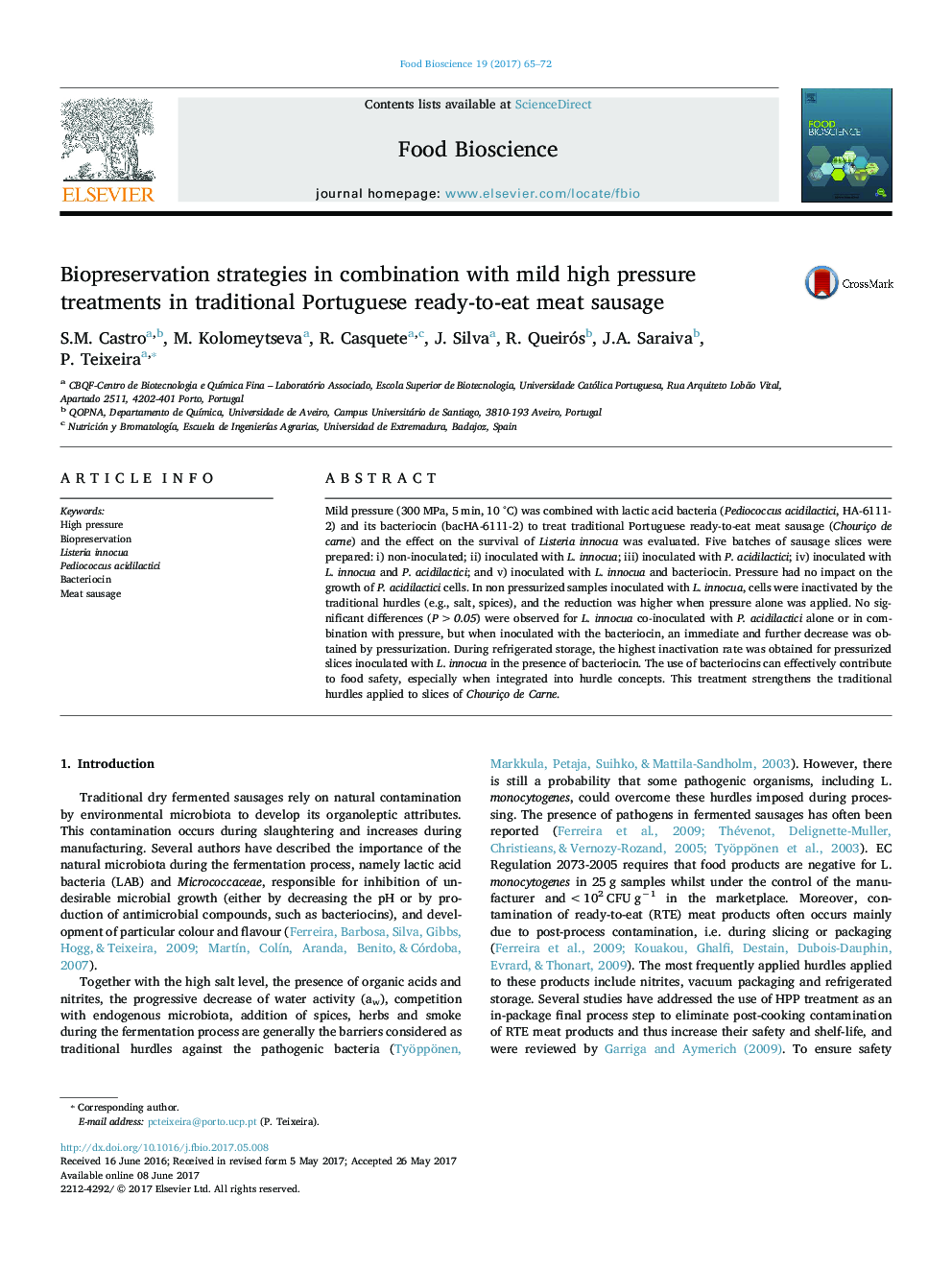| Article ID | Journal | Published Year | Pages | File Type |
|---|---|---|---|---|
| 4753097 | Food Bioscience | 2017 | 8 Pages |
Mild pressure (300 MPa, 5 min, 10 °C) was combined with lactic acid bacteria (Pediococcus acidilactici, HA-6111-2) and its bacteriocin (bacHA-6111-2) to treat traditional Portuguese ready-to-eat meat sausage (Chouriço de carne) and the effect on the survival of Listeria innocua was evaluated. Five batches of sausage slices were prepared: i) non-inoculated; ii) inoculated with L. innocua; iii) inoculated with P. acidilactici; iv) inoculated with L. innocua and P. acidilactici; and v) inoculated with L. innocua and bacteriocin. Pressure had no impact on the growth of P. acidilactici cells. In non pressurized samples inoculated with L. innocua, cells were inactivated by the traditional hurdles (e.g., salt, spices), and the reduction was higher when pressure alone was applied. No significant differences (P > 0.05) were observed for L. innocua co-inoculated with P. acidilactici alone or in combination with pressure, but when inoculated with the bacteriocin, an immediate and further decrease was obtained by pressurization. During refrigerated storage, the highest inactivation rate was obtained for pressurized slices inoculated with L. innocua in the presence of bacteriocin. The use of bacteriocins can effectively contribute to food safety, especially when integrated into hurdle concepts. This treatment strengthens the traditional hurdles applied to slices of Chouriço de Carne.
